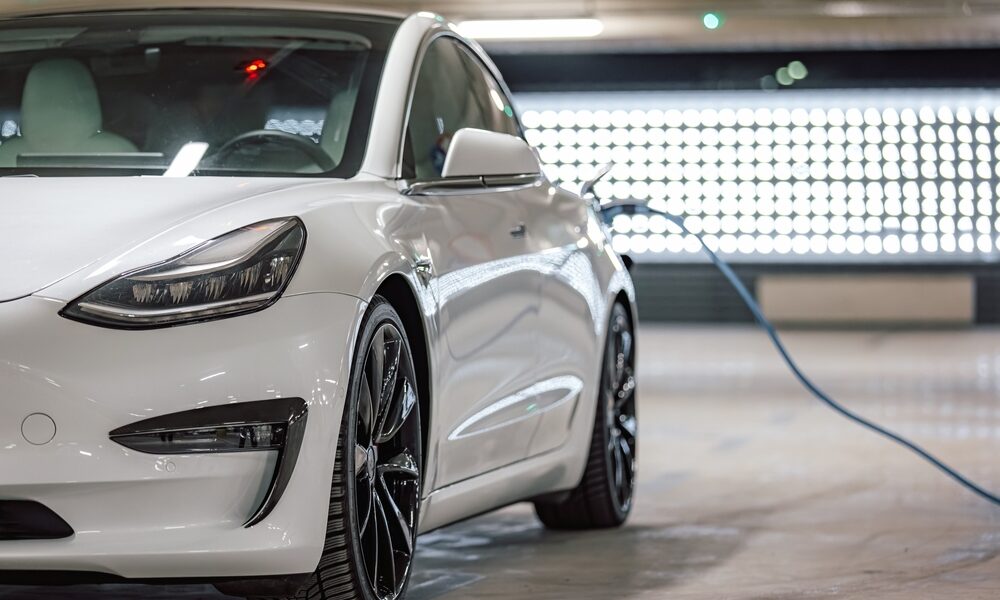March new car data shows consistent growth but battery electric car sales lose out to Petrol
The UK new car market clocked up its twentieth consecutive month of growth in March, with a 10.4% rise in registrations.
In what is typically the busiest month of the year due to the new numberplate, 317,786 new cars reached the road with a 24 plate – the best March performance since 2019, although still -30.6% below pre-pandemic levels.
Petrol cars retained the lion’s share of the market, at 55.7%, with registrations up 9.2% year on year, as diesel volumes fell -2.7% to account for just 7.3% of demand. Uptake of hybrid electric vehicles (HEVs) reached record levels, rising by 19.6% to 44,550 units and 14.0% of the market, while the biggest percentage growth was recorded by plug-in hybrids, up by more than a third to 24,517 units, or 7.7% of all new registrations. Conversely, while battery electric vehicle (BEV) registration volumes were at their highest ever recorded levels, market share fell by one percentage point from the same month last year, down to 15.2%. Registrations rose 3.8%, with only fleets showing any volume growth.
The fall in BEV market share within a growing market underscores the need for government to support consumers to speed up fleet renewal. Large fleets continue to drive BEV uptake, thanks to compelling tax incentives but while registration volumes increased in March, market share declined. A tough economic backdrop makes it ever more challenging for consumers to invest in these new technologies.
Manufacturers themselves are offering generous incentives, helping more drivers switch to zero emission vehicles and deliver government and industry carbon targets, but this cannot be sustained indefinitely.3 A full market transition needs incentives not just for fleet and business buyers but private retail buyers as well, something that would bring the UK into line with other major markets. Temporarily halving VAT on BEVs, revising the threshold for the expensive car supplement on Vehicle Excise Duty next April, and abolishing the ‘pavement penalty’ on public EV charging by equalising VAT rates to 5% in line with home charging, would make a significant difference to consumers, helping more of them move to zero emission vehicles sooner.
Mike Hawes, SMMT Chief Executive, said, “Market growth continues, fuelled by fleets investing after two tough years of constrained supply. A sluggish private market and shrinking EV market share, however, show the challenge ahead. Manufacturers are providing compelling offers, but they can’t single-handedly fund the transition indefinitely. Government support for private consumers – not just business and fleets – would send a positive message and deliver a faster, fairer transition on time and on target.”
Responding to this news, Paul Tomlinson, CEO of EV charging leader Cord, pushed for VAT to be removed from home chargers. He commented: “The Government urgently needs to get a handle on the flat sales for EVs if it is to meet its own targets. Transport is the UK’s number one source of emissions and converting the fleet is the best way to fix it, yet the Government is acting far too tentatively, while other countries streak ahead of us.”
“It’s time to drop the culture war objections to EVs and embrace the future.”
“There are several measures the Government could introduce to increase demand for EVs. Introducing VED rates for EVs next year is clearly hurting demand already, and will raise a tiny amount for the Government – it should push that new tax back several years. Ending the unfair ‘pavement tax,’ which makes public charging far more expensive than home charging, would cost relatively little compared to ongoing fuel tax freezes, but seriously help those who can’t get a home charger installed. And removing VAT on home chargers would make those considerably cheaper to install, saving around £170. These steps wouldn’t cost the earth but would help save it.”
